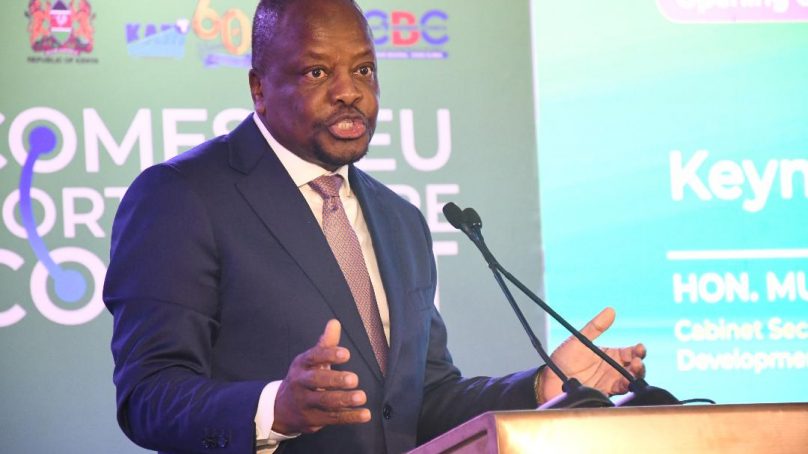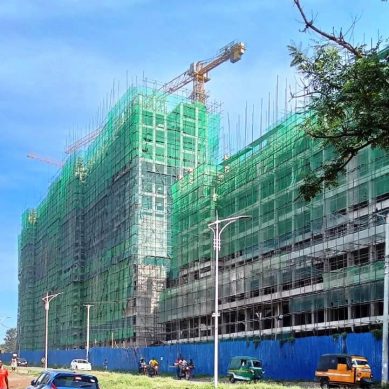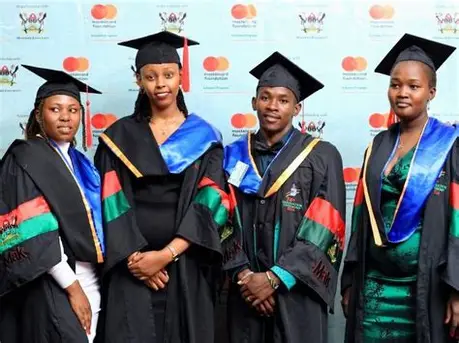
Inaugural Comesa-European Union (EU) Horticulture Connect forum officially opened in Nairobi on Monday with a rallying call to harness digital transformation, streamline trade and catalyse inclusive, sustainable growth through horticulture.
The high-level event, held alongside the 18th Common Market for Eastern and Southern Africa (Comesa) Business Forum and the 24th Comesa Heads of State and Government Summit, brought together key stakeholders from across Africa and Europe in efforts to deepen trade ties, promote digital transformation and unlock the vast potential of the horticultural sector.
Agriculture Cabinet Secretary Mutahi Kagwe addressed digitalisation, strategic partnerships and harmonised trade policies are crucial to achieving sustainable and inclusive growth across the region.
“This forum is not just a dialogue. It is a springboard. It demonstrates our commitment to building a competitive, climate-resilient and digitally-enabled horticultural value chain across Comesa,” Kagwe said.
The cabinet secretary described horticulture as a key pillar of Kenya’s economy and a growing engine for regional trade explaining that in 2024 alone, Kenya’s horticultural exports surpassed Ksh137 billion ($1.06 billion), with cut flowers leading the way, accounting for Ksh72 billion ($556.42 million) in earnings.
“Kenya currently supplies 40 per cent of all roses sold in the EU, exporting more than 60 million stems daily,” Kagwe said.
According to the cabinet secretary, avocados are rapidly becoming Kenya’s top-performing fruit export, with over 128,000 metric tonnes shipped in 2024, generating $159 million. Vegetables such as beans and peas remain vital, particularly for smallholder farmers despite recent setbacks due to tighter European Union regulations.
Highlighting the government’s measures to support growth, Kagwe said the Kenyan government has implemented a suite of reforms to bolster the horticulture industry and ensure it meets global standards.
“We launched the National Horticulture Traceability System (NHTS) in April 2025 to improve compliance and transparency. Other measures include trade agreements with the EU and UK, ensuring duty-free-quota-free access for Kenyan horticultural exports,” Kagwe said.
The cabinet secretary disclosed that cold-chain logistics partnerships with the Netherlands have improved export efficiency adding that they have also collaborated with Italy’s Lab Innova Programme to train exporters and establish a Horticulture Centre of Excellence.
“These steps are about more than market access. They are about securing livelihoods for over four million Kenyans connected to horticulture,” Kagwe said.
Addressing the broader regional challenges, Kagwe underscored Kenya’s commitment to removing Non-Tariff Barriers (NTBs) and strengthening Sanitary and Phytosanitary (SPS) compliance frameworks.
“Our farmers cannot thrive if their produce is stuck at borders due to outdated procedures. We must harmonise standards, digitise customs and adopt mutual recognition agreements across Comesa,” he said.
Such measures, he noted, are essential for unlocking the full potential of the African Continental Free Trade Area (AfCFTA) and ensuring that Small and Medium Enterprises (SMEs) could access regional and global markets more efficiently.
Despite notable successes, Kagwe said that the horticulture sector faces multiple challenges like stricter EU pesticide residue standards, leading to a more than 50 per cent decline in certain vegetable exports.
He highlighted that air freight shortages and rising transport costs disrupted flower shipments in 2024 while currency appreciation weakened Kenya’s export competitiveness while drought conditions reduced avocado output.
“These disruptions highlight the urgent need to build resilience across our supply chains,” the cabinet secretary said, calling for climate adaptation measures, affordable logistics and financial tools tailored to horticulture.
Comesa Secretary General Chileshe Mpundu Kapwepwe hailed the event as a major step forward for regional integration and SME competitiveness.
“The Comesa-EU Horticulture Connect is not just an event. It is the foundation for stronger public–private partnerships, deeper market access and new business linkages that empower women and youth,” she said.
Kapwepwe said that through the EU-funded Regional Enterprise Competitiveness and Access to Markets Programme (Recamp), over 500 SMEs, including at least 30percent women and youth-led businesses, have been trained and connected to international buyers.
She said that exports from Comesa to the EU now exceed $3.3 billion annually, with the Netherlands accounting for 28 per cent of these flows.
Kapwepwe emphasised the success of regional trade missions, including a 2024 learning mission to the Netherlands, which he noted helped multiple SMEs secure contracts and gain critical knowledge on EU standards.
Ministry of Investments, Trade and Industry Cabinet Secretary Lee Kinyanjui said that the event comes at a time when Comesa is scaling regional trade through value chain development.
“The private sector must lead transformation by investing in standards, embracing innovation, and unlocking opportunities across borders,” he said.
Kinyanjui highlighted that the horticulture sector is of immense importance to regional economies as it generates employment for millions, provides export revenues, foreign exchange reserves, improves food and nutrition security, and empowers women and youth.
“In Kenya alone, the sector contributes about 1.6 per cent to national gross domestic product (GDP) and positions us as one of Africa’s leading exporters of cut flowers exported to the European Union alongside fruits and vegetables that reach markets worldwide. This experience demonstrates the potential for other Comesa Member States when we build strong value chains and align to international standards,” Kinyanjui said.
State Department for Trade Principal Secretary Regina Ombam encouraged Comesa producers to fully engage with EU buyers and leverage on the opportunity for real business growth.
“This is more than a conference; it is a platform for action. We urge our exporters to rise to the occasion, meet the standards, and form lasting partnerships,” she said.
Lana Žutelija, the Team Leader for Environment and Climate, Rural Development, Trade Cooperation Section within the Delegation of the European Union to Zambia and Comesa said that in line with the summit theme, the EU is working towards matching the investments by businesses and private sector players in efforts to enhance the sustainability of value chains.
“In the Comesa region, agriculture is the lifeblood as it employs 70 per cent of the population and at this particular stage in time, digital tools are no longer an option. They are essential as they help farmers get access to markets and open new doors to international markets,” Žutelija said.
She commended the Comesa-EU horticulture initiative saying that it is through targeted cooperation that partners could achieve more, channel investments into robust systems and enhance standards as well as deploy cutting edge technologies
- A Tell Media / KNA report / By Joseph Ng’ang’a







